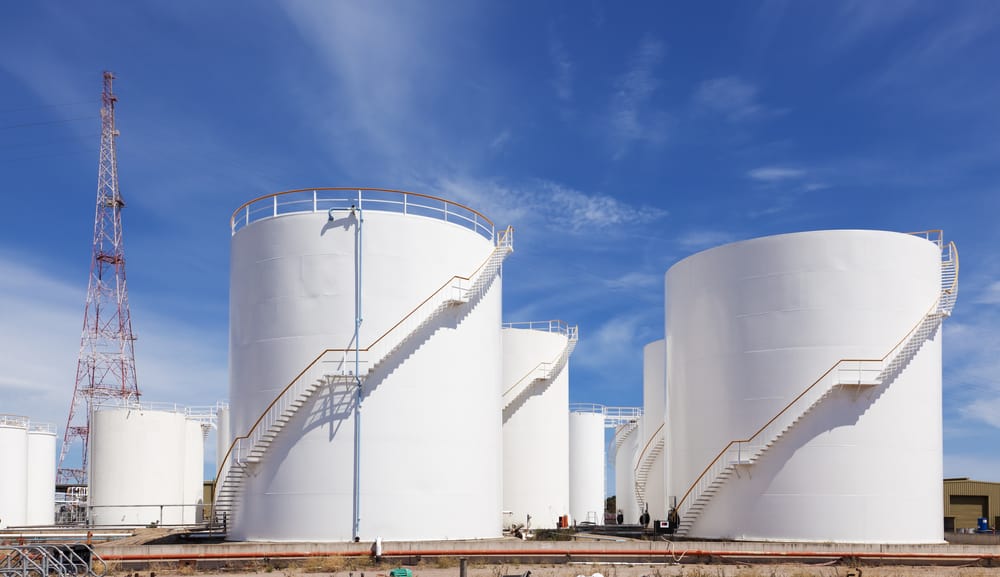
08 Aug Insulation Thickness for Tanks: Factors to Consider for Optimal Performance by Thermacon
The Ultimate Guide to Determining the Perfect Tank Insulation Thickness
Why Is Tank Insulation Thickness So Crucial?
Tanks are pivotal in many industrial operations, whether used for storage or processing. Ensuring they function optimally is essential; one way to achieve this is through proper insulation. But it’s not just about insulating the tanks; the thickness of the insulation matters immensely.
Getting the insulation thickness right is a balancing act. If the insulation is too thin, you risk compromising on thermal performance. This can lead to temperature fluctuations, affecting the quality and safety of the tank’s contents. On the other hand, if the insulation is thick enough, it could be an unnecessary expenditure in terms of material cost and space.
Factors That Influence the Ideal Insulation Thickness
When you’re trying to pinpoint the perfect insulation thickness for your tanks, you’re juggling various influencing factors. Foremost among these is the nature of the tank’s contents. Are you storing a liquid that needs to be kept at a high temperature, or is it a cold storage requirement? Each scenario demands different insulation considerations.
Furthermore, the external environment plays a significant role. Tanks in colder climates will naturally have different insulation needs than those in tropical or temperate zones. Similarly, the material of the tank is crucial. Materials like stainless steel, for instance, have a different heat transfer rate than, say, plastic or fiberglass, thus impacting the insulation decisions.
Advantages of Pinpointing the Correct Tank Insulation Thickness
Achieving the right thickness for your tank insulation isn’t just about ticking a box; it brings many tangible benefits. At the forefront is energy efficiency. Proper insulation ensures minimal energy escapes the tank, significantly saving energy bills over time.
Beyond the monetary aspect, there’s a consistent internal temperature assurance. This stability is vital for maintaining the quality of the tank’s contents, be it liquid, gas, or any other substance. Additionally, the right insulation thickness can significantly reduce condensation. This not only helps prevent potential corrosion but also enhances the overall lifespan of the tank by preventing damage.
Debunking Common Myths About Tank Insulation
While crucial, the world of tank insulation is often riddled with misconceptions. One such prevailing myth is that “thicker is always better.” While having a thick layer of insulation can offer excellent protection, it’s not universally the correct answer. An overly thick layer can sometimes prove counterproductive, wasting resources and space.
Another misconception is that all tanks, regardless of type, size, or location, need the same insulation. This couldn’t be further from the truth. Each tank presents unique requirements stemming from its purpose, the material it’s made from, and its geographical location. Moreover, some believe insulation is only vital in colder regions. However, even in warmer climates, insulation prevents overheating and maintains the consistency of the tank’s contents.
Thermacon: Your Partner in Precision Insulation Solutions
Thermacon’s approach to tank insulation is scientific and customized. Recognizing that no two tanks are identical, we’ve honed our expertise to offer solutions that cater to the distinct needs of each tank. Our experts take the time to thoroughly analyze the specific requirements of your tanks, from their size and usage to their location.
With our guidance, customers are armed with insights into the best insulation thickness for their tanks. Our involvement continues after a recommendation. From the initial consultation to the final installation, our team is committed to ensuring that your tanks are perfectly insulated for peak performance, long-lasting durability, and unparalleled energy efficiency.
Key Takeaways for Discerning Tank Owners
In the intricate landscape of tank insulation, being informed is half the battle. And the more you know, the better positioned you are to make the right decisions for your assets. The purpose of the tank is paramount. It dictates the type of insulation you need and the ideal thickness. Whether it’s a storage tank for petroleum or a processing tank in a dairy, the function influences the insulation.
Environmental considerations must be stressed more. Insulation needs will vary depending on whether your tank is in a frosty northern region or a sun-soaked southern zone. Lastly, don’t go it alone. Tank insulation is a niche field, and consulting with seasoned experts, like those at Thermacon, can provide clarity, ensuring optimal decisions for tank longevity and efficiency.



Sorry, the comment form is closed at this time.